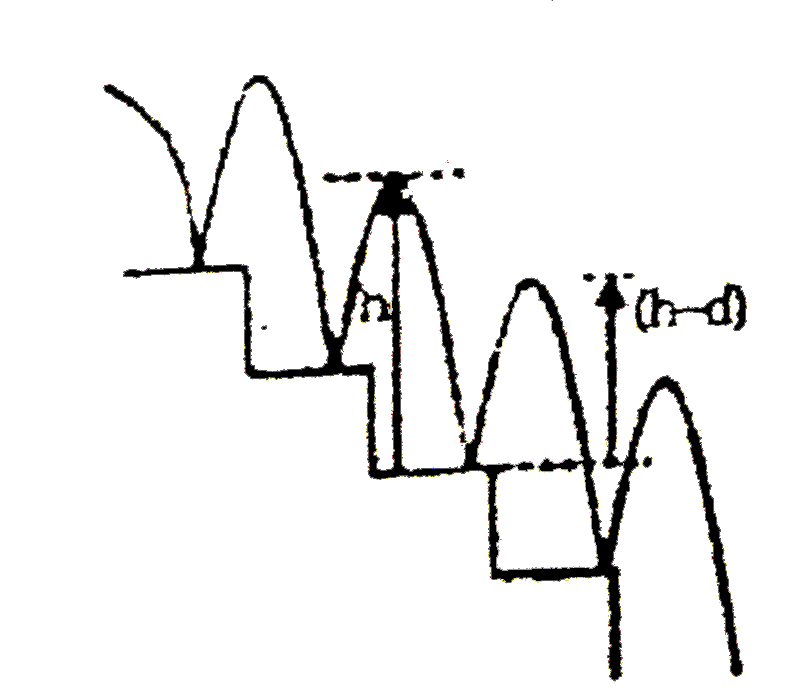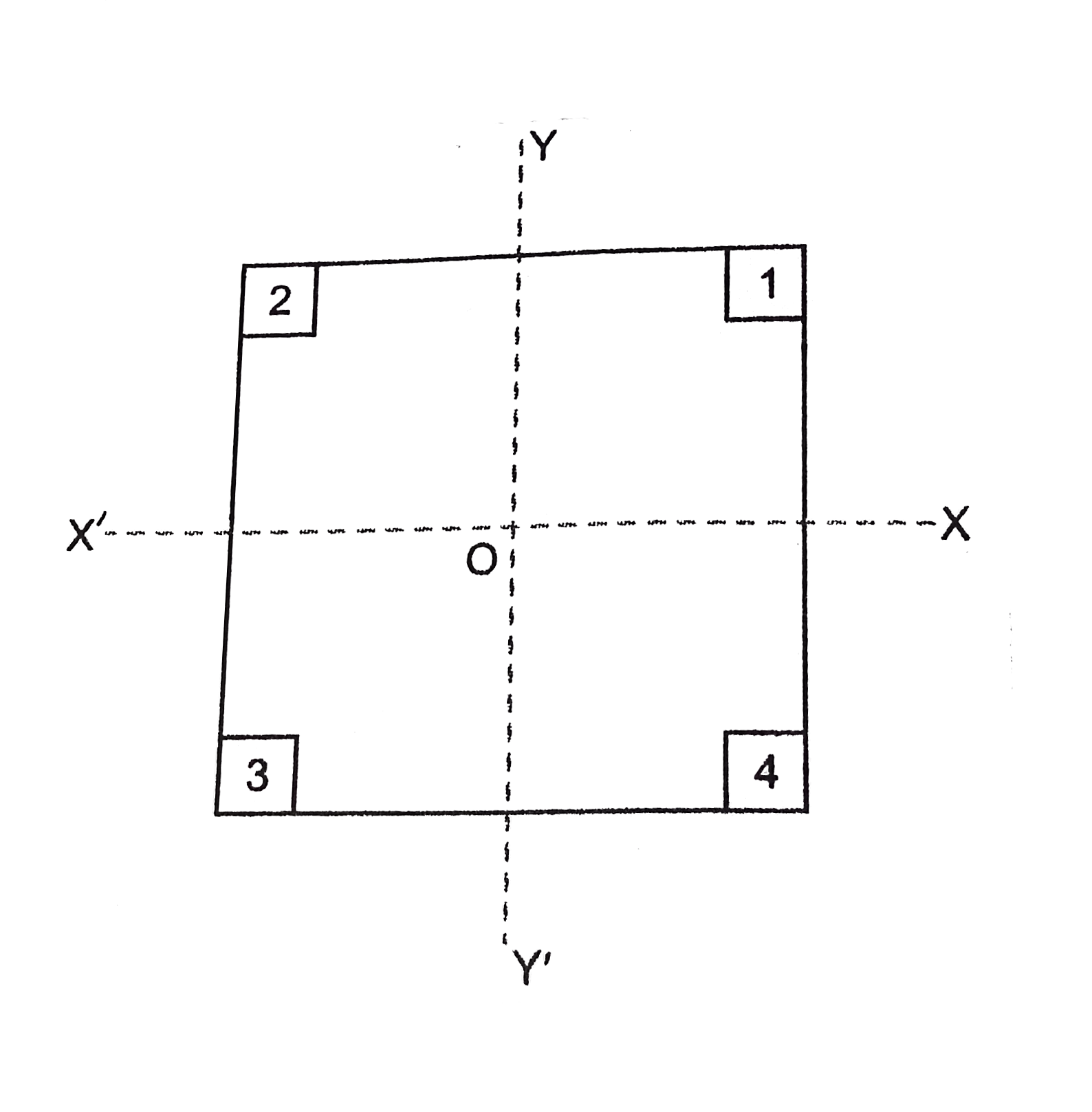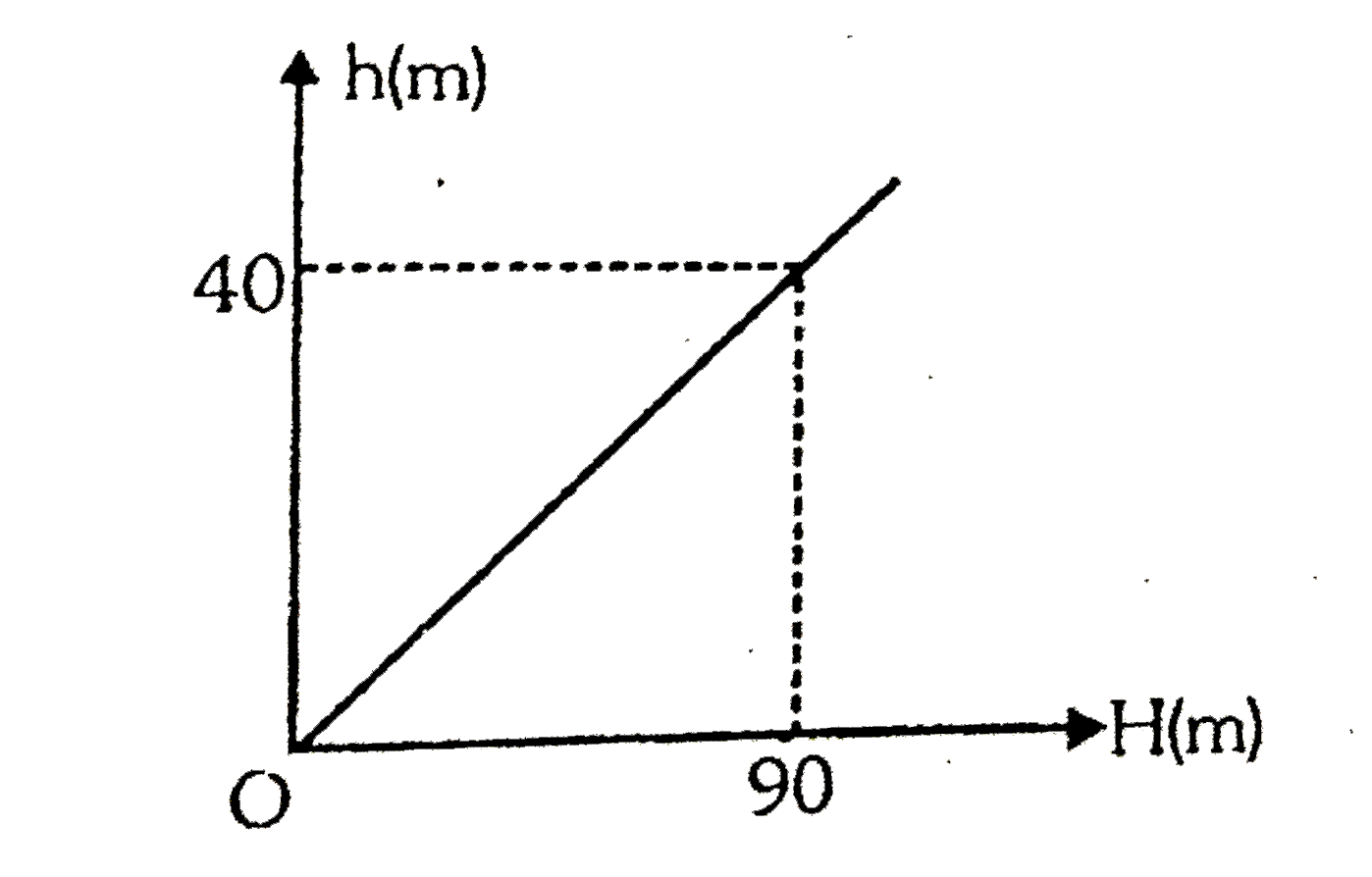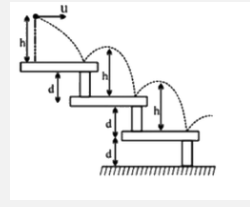A ball is bouncing down a flight of stairs. The coefficient of restitution is e. The height of each step is d and the ball descends one step each bounce. After each bounce it rebounds to a height h above the next lower step. The height is larger enough compared with the width of step so that the impacts are effectively head-on. Find the relationship between h and d.
hd=1−e2
hd=1−e
hd=11−e2
hd=11−e
The correct Answer is:C

√2g(h−d)=e√2gh⇒hd=11−e2
Topper's Solved these Questions
- BOOK - ALLENCHAPTER - CENTRE OF MASSEXERCISE - EXERCISE-III42videos
CENTRE OF MASS
- BOOK - ALLENCHAPTER - CENTRE OF MASSEXERCISE - EXERCISE-IV A32videos
CENTRE OF MASS
- BOOK - ALLENCHAPTER - CENTRE OF MASSEXERCISE - EXERCISE-I40videos
CENTRE OF MASS
- BOOK - ALLENCHAPTER - BASIC MATHEMATICS USED IN PHYSICS &VECTORS EXERCISE - EXERCISE-IV ASSERTION & REASON11videos
BASIC MATHEMATICS USED IN PHYSICS &VECTORS
- BOOK - ALLENCHAPTER - ELASTICITY, SURFACE TENSION AND FLUID MECHANICSEXERCISE - Exercise 5 B (Integer Type Questions)3videos
ELASTICITY, SURFACE TENSION AND FLUID MECHANICS
Similar Questions
A particle of mass m, kinetic energy K and momentum p collides head on elastically with another of mass 2 m at rest. Match the following columns after collision.)
column1column2A momentum of first particleP 3/4 pB Momentum of second particleQ -K/9C Kinetic energy of first particleR -p/3D Kinetic energy of second particleS 8K/902:29View SolutionFig. shown a uniform square plate from identical squares at the corners can be removed. (a) Where is the centre of mass of the plate originally ? (b) Where is it after square 1 is removed ?
(c ) where is it after squares 1 and 2 are removed ? (d) Where is c.m after squares 1,2,3, are removed ?
(f) Where is c.m after all the four squares are removed ? Answer in terms of quadrants and axes.
 02:42View Solution
02:42View SolutionThe centre of mass of a non uniform rod of length L, whose mass per unit length varies as ρ=k.x2L where k is a constant and x is the distance of any point from one end is (from the same end)
07:38View SolutionStatement-I : If the initial and final positions coincide, the displacement is a null vector.
Statement-II : A physical quantity can not be called a vector, if its magnitude is zero.07:01View SolutionTwo soap bubbles A and B are kept in aclosed chamber where the air is maintained at pressure 8Nm2. The radiiof bubbles A and B are 2cm and 4 cm , respectively. Surface tension of the soap-water used to make bubbles is 0.04 N/m. The ratio of nB/nAis ( where nA and nB are the numbe of moles of air in bubbles A and B,respectively.)
[Neglect the effect of gravity]02:03View SolutionA tennis ball bounces down a flight of stairs, striking each step in turn and rebounding to half to height of the step. The coefficient of restitution is
04:29View SolutionA ball of mass 2kg dropped from a height H above a horizontal surface rebounds to a height h after one bounce. The graph that relates H to h is shown in figure. If the ball was dropped from an initial height of 81 m and made ten bounces, the kinetic energy of the ball immediately after the second impact with the surface was
 01:33View Solution
01:33View SolutionA ball is bouncing down a set of stairs. The coefficient of restitution is e. The height of each step is d and the ball bounces one step at each bounce. After each bounce the ball rebounds to a height h above the next lower step. Neglect width of each step in comparison to h and assume the impacts to be effectively head on. Which of the following relative is correct ?
04:29View SolutionA staircase has each step of height h and width x. A ball strikes the centre point of a step with velocity v making an angle theta with the vertical. It rebounds and strikes the centre point of the next step. Once again it rebounds and hits the centre point of the next step and so on. Assume that there is no friction between the ball and the steps and coefficient of restitution is e. (a) Show that each time after hitting a step, the ball climbs to the same height (i.e., heights like AB and CD shown in figure are equal). (b) Find h and x.
View SolutionA body from height h is dropped, if the coefficient of restitution is e, then calcualte the height achieved after one bounce.
02:35View SolutionA ball is thrown horizontally from a height h above a staircase as shown in the figure. If the coefficient of restitution for any collision between the ball and the staircase is e, then the value of h for which the ball will bounce the same height above each step, is
 View Solution
View SolutionA ball is dropped from height h on the ground where co-efficient of restitution is e. After one bounce the maximum height is
04:16View SolutionA ball is thrown horizontally from a height h above a staircase as shown in the figure. If the coefficient of restitution for any collision between the ball and the staircase is e, then the value of h for which the ball will bounce the same height above each step, is
 04:34View Solution
04:34View SolutionA small steel ball bounces on a steel plate held horizontally. On each bounce the speed of the ball arriving at the plate is reduced by a factor e (coefficient of restitution) in the rebound , so that V_("upward")=eV_("downward") If the ball is initially dropped from a height of 0.4m above the plate and if 10s later the bouncing ceases, the value of e is
View Solutionएक टेनिस की गेंद टेनिस के नेट से टकराकर उछलती है तथा पूर्व से आधी ऊँचाई तक जाती है तथा दो चरणों में उछलती है, प्रत्यास्थता गुणांक होगा
05:32View SolutionA ball is bouncing down a flight of stairs. The coefficient of restitution is e. The height of each step is d and the ball descends on step each bounce. After each bounce it rebounds to a height h above the next lower step. The width of step so that the impacts are effectively head - o n. Find the relationship between h and d.
02:25View Solution

